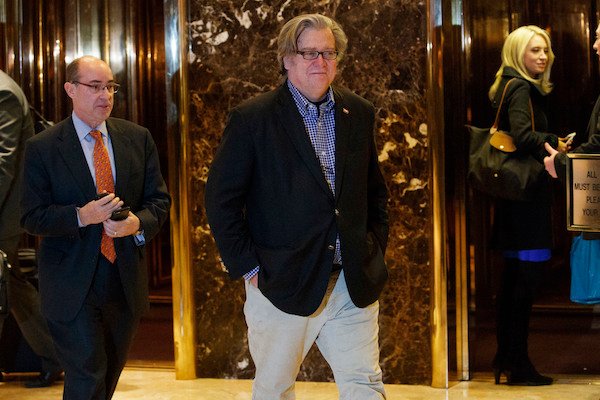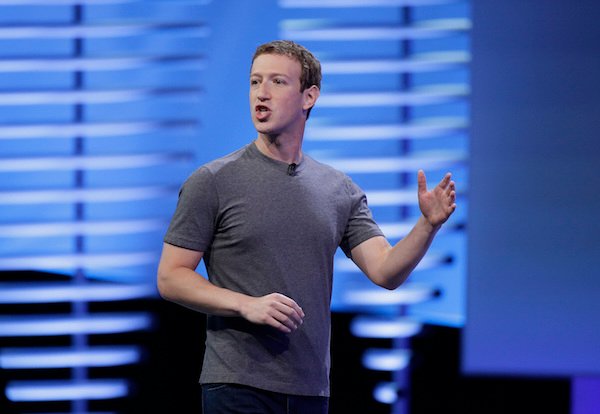Editor’s Note: With Inauguration Day barely less than ten weeks away, we’ll be taking a look at some of the most interesting developments of Trump’s transition team as the president-elect prepares to step away from the real estate and reality TV worlds where he made his fortune.
President-elect Donald J. Trump is already shuffling the Washington deck with some appointees to his administration, and on Sunday preached to his supporters a message of reconciliation with a liberal opposition who has protested the results of the election for nearly a week straight.
This week, he looks to subdue fears that his presidency will bring about an even larger divide in the hyper-polarized political sphere, while social media continues to weigh in on the election in not-so-kind verbiage as the nationalist forces in the West continue to pick up steam.
Here’s what’s trending as we kick off the first week after America’s elections:
1. French conservatives looks to capitalize on nationalist movement
Following the successes of the Brexit and Donald Trump campaigns, French far-right leader Marine Le Pen is gaining traction in that country’s elections where she hopes to enter a runoff and win the presidency. Speaking to BBC about Trump’s election in the U.S., she said “he made possible what had previously been presented as impossible.”
Framing the French election in familiar terms, she said: “So it’s really the victory of the people against the elites.”
2. Trump looks to strike balance between ‘alt-right’ and Washington insiders

Steve Bannon, campaign CEO for President-elect Donald Trump, leaves Trump Tower, Friday, Nov. 11, 2016, in New York. (AP Photo/ Evan Vucci)
Immediately after naming Republican National Committee chairman Reince Priebus as his chief of staff, President-elect Trump announced he would install former Breitbart News CEO as his chief strategist in the White House in a nod to the alt-right conservatives who helped him into office.
As soon as the announcement was made public, contemporary outrage culture exploded in acrimony with comments, likes, memes and general anger.
3. Trump promises to deliver on mass deportations
Before saying “Stop it,” to his supporters who take an active part in discrimination against traditionally marginalized people in a 60 Minutes interview on Sunday, Trump promised to deliver on a deportation force that would be in charge of taking in upwards of 3 million criminals and illegal aliens out of the United States in an effort to secure the border and enforce the law.
House Speaker Paul Ryan has sounded skepticism of that plan, saying “We are not planning on erecting a deportation force.” It potentially pits the two against one another, as they try to forge a relationship for passing laws with Republicans in control of all three levers of national government.
4. Bernie Sanders, after announcing potential 2020 run, calls for changes to DNC culture

Sen. Bernie Sanders, I-Vt., campaigns for Democratic presidential candidate Hillary Clinton in Omaha, Neb., Friday, Nov. 4, 2016. (AP Photo/Nati Harnik)
In a USA Today interview released on Monday, Sen. Bernie Sanders of New York who was defeated by Hillary Clinton for the Democratic nomination over the summer sounded off on why he is unsurprised at the election of Donald Trump.
“Look, I campaigned in 46 states in this country. The punditry and the inside-the-Beltway mentality really has very little understanding of what’s going on with working people. It’s really almost embarrassing.” Sanders also announced his support for protesters of the elections, and suggested America re-inspect its dedication to the electoral college.
In a separate interview with CBS, Sanders said there must be “a profound change in the way the Democratic Party does business.” He continued: “It is not good enough to have a liberal elite. I come from the white working class and I am deeply humiliated that the Democratic Party can’t talk to the people where I came from.”
5. Facebook’s Mark Zuckerberg denounces fake news

Facebook CEO Mark Zuckerberg delivers the keynote address at the F8 Facebook Developer Conference Tuesday, April 12, 2016, in San Francisco. Zuckerberg said Facebook is releasing new tools that businesses can use to build “chatbots,” or programs that can talk to customers in conversational language. (AP Photo/Eric Risberg)
With the spread of misinformation and incidents of isolated extremism being seen by more people than ever, Facebook CEO Mark Zuckerberg is coming under increasing pressure to address the way his social media platform plays a part in the general election process.
In defending the way online news is shared, Zuckerberg said “I believe we must proceed very carefully . . . Identifying the ‘truth’ is complicated. While some hoaxes can be completely debunked, a greater amount of content, including from mainstream sources, often gets the basic idea right but some details wrong or omitted.
The company has denied it is a media operation, even as it rakes in record advertising dollars and studies show 44 percent of adults use Facebook as a source for news.
